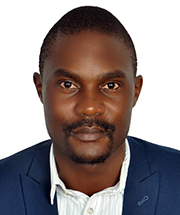Is social justice last resort for unheard voices of seniors?
For older persons, a day lived is worth celebrating, because they are not certain of what tomorrow will entail

By Isaac Ddumba
On October 1, the world celebrated the International Day of Older Persons, with a theme "The journey to Age Equality" with the main focus on existing strategies and pathways that aims in the prevention of future age inequality.
Older persons suffer in silence among which include; gross infringement to their rights, unequal distribution of resources, poor access to optimal health care and poor representation in political positions. The challenges deter older person's equal participation in any of important fora for their voices to be effectively heard.
Uganda, like any other countries, the population of older persons is steadily increasing. According to the 2016 census, 1 in 10 (4%) people in Uganda are aged 60 years and above. But as we celebrate that every child born in Uganda can averagely be assured of living beyond 62.5 years, life beyond that age will be a nightmare, if some impending challenges among the seniors are not addressed.
As often alluded to that, increase in life expectancy is one of the greatest achievement mankind has ever achieved across the world, this statement would rather sound obscure in the ears of most Ugandan seniors.
It's ironic that the government have put several social and health interventions in place to prevent premature deaths, but with meagre plans/interventions for life after 60 years. For older persons, a day lived is worth celebrating, because they are not certain of what tomorrow will entail. Adaptation and resilience is a phenomenon that seniors resorted to.
Social justice refers to equal, fairness and equitable distribution of goods and services (health care delivery inclusive) within the social context. It further focuses on individuals or groups that influence the equal distribution of services- availability and access to optimal health care treatment.
Generally, human rights activists on health/health care have generally focused on health-related issues that concern women and children. Hardly are the voices of what are we normally referred to as vulnerable groups; seniors' particulars are rarely heard. Older persons in Uganda face multitudes of health-related concerns, social, economic and psychological issues, most of them which critical analysis and contextual interventions drawn. With such burden of challenges mentioned, minimal attention has been directed in addressing those issues in later years.
In this editorial, let me focus on health-related challenges that affect the majority of older persons. Although it's not theoretically evident, the vulnerability of medical conditions increases in later years. Six in every ten older persons reported at least one sign and symptoms of any medical conditions. However, several studies done in Uganda, have documented poor access and suboptimal health care services among seniors.
A case in point recently met an older person who fractured his left hip joint due to fall. He had visited a different hospital, but his family could not afford to pay for surgery. His condition deteriorated and died. He is one of the many seniors who die due to inequitable access to optimal care in later years. Although people will urge that inequitable access to health care cuts across all age categories, the vulnerability differs.
As a social gerontologist, we often focus on the social construct of the ageing population and their wellbeing; hardly do we focus on civil and human rights of vulnerable groups such as older persons. Perhaps this is because these issues make us uncomfortable or perhaps, it is because we feel helpless against large social structures that make violations of rights possible.
In the context of health as a human right, especially in later years, calls for the pledge to seek for social justice means that everyone (older persons inclusive) must be able to avoid preventable deaths due to inequity in access to optimal health care. Far too often, and inequitable access to health care among older in Uganda grossly exist, leading to seniors succumbing to what would have been preventable death. Disparities in access to health care provision, poor representation politically, social contentions and a multitude of other factors, could be some of the attributes to segregation.
The question is; could social justice be mean to highlights the challenges older persons face in access to health care and other social problems? How could we raise the unheard voices of Ugandan seniors, in order to improve their wellbeing? However, there no silver bullet strategy to address this impasse, but the government should aim at institutionalizing long term care inclusion into the Ugandan health care systems and clearly demarcate services provisions for older persons in Uganda.
If all the stakeholders fail to acknowledge the challenges faced by older persons equitably, then social justice would sound like a better option
The writer is the founder and executive director, African Research Center 4 Ageing & Dementia (ARCAD).